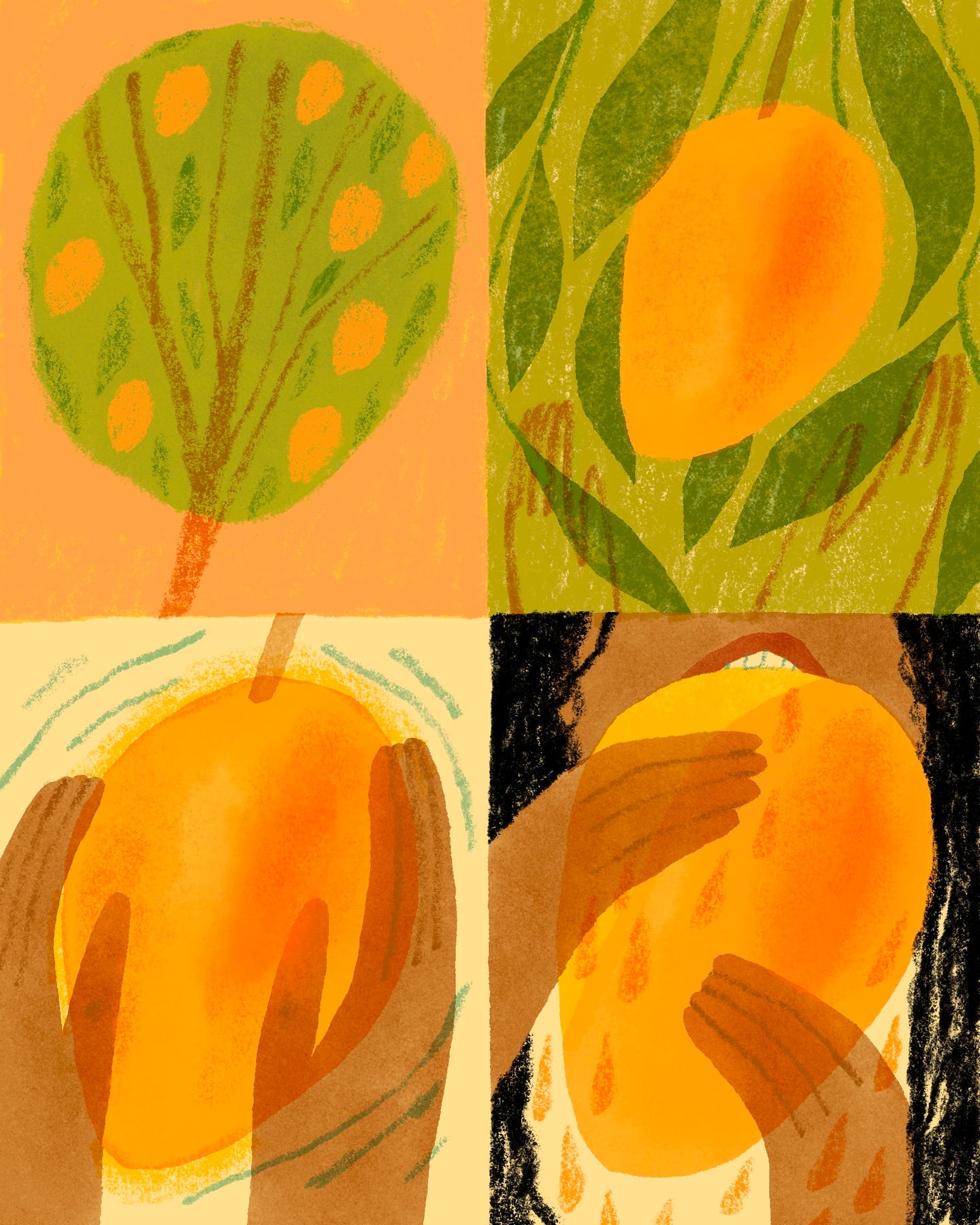
Omar Tate & Cybille St.Aude-Tate on Celebrating Black Foodways and Building Better Food Systems in Philadelphia
The couple behind the newly opened Afrocentric grocer and cafe Honeysuckle Provisions chats with us on this week’s episode of Place Settings.

Welcome to our new podcast, Place Settings. This season, we’re traveling across the U.S. to meet the chefs, farmers, makers, and creatives who are transforming the food space through their unique connection to a place. Tune in each week, as our editors chat with a food innovator whose personal journey is as compelling as what they’re putting on the plate.
With Honeysuckle Provisions, co-founders Omar Tate and Cybille St.Aude-Tate are offering something comfortingly familiar but also radically new. Their Afrocentric grocery store and cafe opened last month in West Philadelphia to serve a neighborhood where fresh, organic produce and healthy food options were in short supply.
Building on over a decade of experience working as chefs mostly in New York City—with both also running successful pop-ups until the pandemic hit—the couple wanted to create a different kind of food space. Honeysuckle Provisions directly supports Black farmers, dismantles toxic kitchen culture, and celebrates Black foodways with menu highlights like the BLACKenglish muffin (named after a James Baldwin essay), or a cup of the COWPEAcoffee (a nod to George Washington Carver).
Throughout their careers, both chefs have used food as an outlet for sparking impactful conversations: Omar is an artist and poet, who was named Esquire’s Chef of the Year in 2020 and was featured on the Time100 Next list in 2021. Cybille has cooked at the James Beard House, appeared on the TV show Chopped, and explores her Haitian heritage through culinary projects like a recent dinner hosted with the family of artist Jean-Michel Basquiat.
In the last three years, the couple fell in love, got married, had a baby (with a second on the way), and launched their umbrella organization Honeysuckle Projects alongside the provisions shop—but, as you’ll hear, they’re just getting started. Here are a few more highlights from our senior editor Benjamin Kemper’s conversation with them:
On Food Being a Catalyst for Connection
“The one thing that my mom made me in charge of for dinner was preparing the Kool-Aid for my family. But what I didn't want to do was offer this chemical, sugary substance as part of the meal for Honeysuckle. So I decided to make it from real foods—freeze-dried strawberries, sugar, and citric acid—to mimic or replicate the same flavor profile, while making it a fully natural, organic substance. In the same way that I was able to rip open a packet and stir this red concoction into water for my family, I wanted each individual at the table to share their experience with me. Although Kool-Aid itself is made for everyone, Black people have this kind of stigma for sweet, sugary drinks that stemmed from the history of watermelon. What I wanted people to do was to look beyond the hands that are making this drink by using their own hands. Hopefully, at least for that moment, the guest is living within the realm of empathy that removes the stereotype and all the things that come along with it.” —Omar Tate
On Sharing the Full Story Behind Every Ingredient
“We're just very intentional about everything from our sourcing to how we're preparing every single thing on our menu. If we bring in a new product or a new item—that could be a Haitian ingredient or could be something from Sierra Leone—we're not just putting it on the menu and telling folks ‘Here, taste it because it's good.’ There's a bit of education that comes along with it, in hopes of people broadening their palates and understanding more about our food ways. The approach we've had from the beginning is that we're giving folks the agency of choice. We’re making sure our customers, our neighbors are more informed.” —Cybille St.Aude-Tate
On Honeysuckle Projects Providing a Blueprint for the Future
“We can't be the only ones doing this work—and we're not. But if we're the only ones doing this type of work in Philadelphia, we are not better off as a people. And so we want to be able to open our doors—and then to open in different cities—and have folks come in and expound on what we're doing, and say, ‘Hey, we have this really cool idea that would work within Honeysuckle…’ so we can provide more access to fresh ingredients and good food to others.” —Cybille St.Aude-Tate
“People have described what we’re doing as world building. And that’s one of the few labels that I really appreciate, because the folks that we’re working with are not a part of these more conventional ecosystems.” —Omar Tate
Special thanks to Wisconsin Cheese for supporting this season.
Keep Reading
Continue to Next Story










